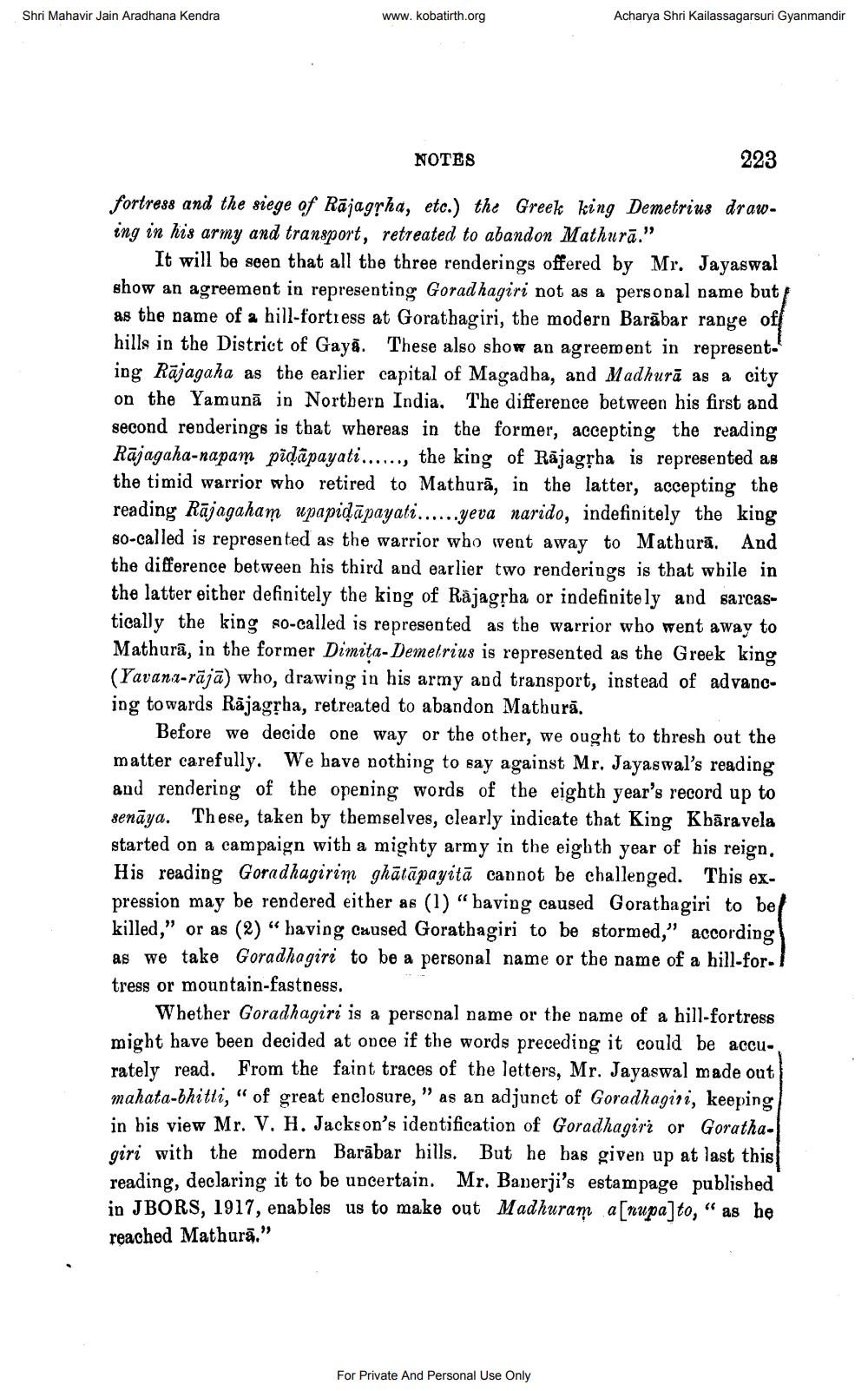________________
Shri Mahavir Jain Aradhana Kendra
www.kobatirth.org
Acharya Shri Kailassagarsuri Gyanmandir
NOTES
223 fortress and the siege of Rājagļha, etc.) the Greek king Demetrius drawing in his army and transport, retreated to abandon Mathurā."
It will be seen that all the three renderings offered by Mr. Jayaswal show an agreement in representing Gorad hagiri not as a personal name but as the name of a hill-fortiess at Gorathagiri, the modern Barābar range of hills in the District of Gayã. These also show an agreement in represent. ing Rājagaha as the earlier capital of Magadha, and Madhurā as a city on the Yamunā in Northern India. The difference between his first and second renderings is that whereas in the former, accepting the reading Rājagaha-napam pidāpayati......, the king of Rājagsha is represented as the timid warrior who retired to Mathurā, in the latter, accepting the reading Rājagaham upapidāpayati......yeva narido, indefinitely the king so-called is represented as the warrior who went away to Mathurā. And the difference between his third and earlier two renderings is that while in the latter either definitely the king of Rajagrha or indefinitely and sarcastically the king so-called is represented as the warrior who went away to Mathurā, in the former Dimita- Demetrius is represented as the Greek king (Yavani-rājā) who, drawing in his army and transport, instead of advancing towards Räjagrha, retreated to abandon Mathurā.
Before we decide one way or the other, we ought to thresh out the matter carefully. We have nothing to say against Mr. Jayaswal's reading and rendering of the opening words of the eighth year's record up to senāya. There, taken by themselves, clearly indicate that King Kbāravela started on a campaign with a mighty army in the eighth year of his reign, His reading Goradhagirim ghātāpayitā cannot be challenged. This expression may be rendered either as (1) “ baving caused Gorathagiri to be killed," or as (2) “ having caused Gorathagiri to be stormed,” according as we take Goradhagiri to be a personal name or the name of a hill-for.) tress or mountain-fastness.
Whether Goradhagiri is a personal name or the name of a hill-fortress might have been decided at once if the words preceding it could be accurately read. From the faint traces of the letters, Mr. Jayaswal made out mahata-bhitti,“ of great enclosure," as an adjunct of Goradhagiri, keeping in his view Mr. V. H. Jackeon's identification of Goradhagiri or Gorathagiri with the modern Barābar hills. But he has given up at last this reading, declaring it to be uncertain. Mr. Banerji's estampage published in JBORS, 1917, enables us to make out Madhuram a[nupa]to, “ as he reached Mathurā."
For Private And Personal Use Only




